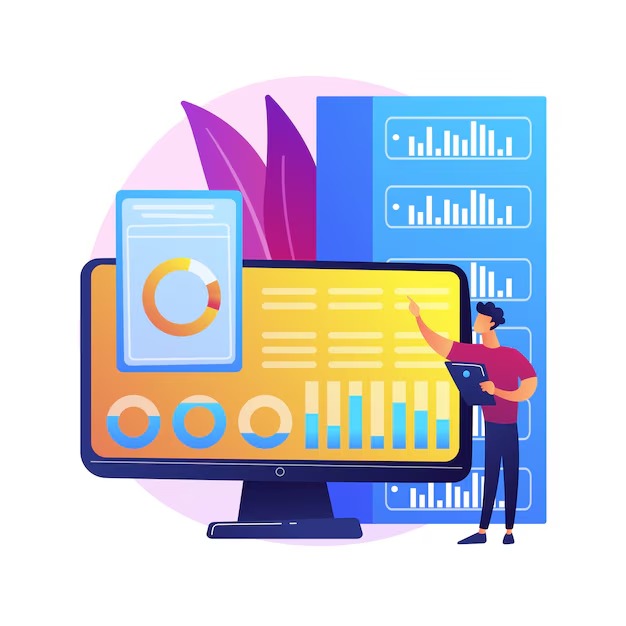
In today’s digital-first economy, businesses are generating more data than ever before. From customer interactions and social media engagement to website analytics and purchase behavior, every touchpoint provides valuable insights. However, without the right tools, this data often remains fragmented and underutilized. That’s where a Data Management Platform (DMP) comes in—a centralized system designed to collect, organize, and activate data to fuel smarter marketing and business decisions.
What is a Data Management Platform?
A Data Management Platform is a technology solution that gathers data from multiple sources, organizes it into meaningful segments, and makes it actionable for marketing, advertising, and customer experience strategies. Think of it as a bridge that connects raw data with intelligent business insights. By consolidating data from online, offline, first-party, second-party, and third-party sources, a DMP provides companies with a unified customer view.
Why Do Businesses Need a Data Management Platform?
Modern businesses operate in a highly competitive and customer-driven environment. Personalized experiences are no longer optional—they’re expected. Here are some reasons why a DMP is essential:
-
Data Unification: It integrates scattered data across multiple touchpoints, eliminating silos.
-
Audience Segmentation: A DMP allows marketers to build audience segments based on behavior, demographics, and interests.
-
Improved Targeting: With precise segmentation, businesses can run more relevant ad campaigns.
-
Cross-Channel Marketing: Whether it’s email, social media, or display ads, a DMP helps ensure consistent messaging across platforms.
-
Data-Driven Decisions: Businesses can move from guesswork to strategic planning with accurate insights.
Core Features of a Data Management Platform
-
Data Collection – A DMP gathers first-party (customer-owned), second-party (partner-shared), and third-party (external providers) data.
-
Audience Profiling – It builds customer profiles by combining multiple attributes like age, location, interests, and purchase intent.
-
Segmentation – Marketers can create highly specific audience groups for personalized targeting.
-
Data Activation – A DMP integrates with demand-side platforms (DSPs), CRM tools, and analytics platforms to activate data for campaigns.
-
Analytics & Insights – Businesses can track performance, measure ROI, and refine strategies using real-time insights.
DMP vs. CDP: What’s the Difference?
A common point of confusion is between a Data Management Platform (DMP) and a Customer Data Platform (CDP). While both deal with data, they serve different purposes:
-
DMP: Primarily focuses on anonymous, cookie-based data for advertising and targeting.
-
CDP: Stores personally identifiable customer data for personalized engagement.
In many cases, businesses use both platforms together to get a complete picture of customer behavior.
Benefits of Implementing a Data Management Platform
-
Enhanced Customer Experience: Deliver relevant content, offers, and ads to the right people at the right time.
-
Optimized Ad Spend: Reduce wasted budget on irrelevant audiences and focus on high-converting segments.
-
Scalability: Handle massive amounts of data effortlessly as your business grows.
-
Better Collaboration: A centralized data hub allows marketing, sales, and customer service teams to align more effectively.
Real-World Applications of a Data Management Platform
-
Retail Industry – Retailers use DMPs to understand shopping habits and personalize product recommendations.
-
Travel & Hospitality – Airlines and hotels leverage DMPs for targeted promotions and loyalty programs.
-
Media & Entertainment – Streaming platforms use DMPs to suggest shows and ads based on user interests.
-
Financial Services – Banks and insurers apply DMP insights to personalize offers while staying compliant with data regulations.
Challenges of Using a Data Management Platform
While DMPs are powerful, businesses must address certain challenges:
-
Data Privacy Regulations: With GDPR and CCPA, handling customer data responsibly is a must.
-
Integration Complexity: Aligning a DMP with existing tools can be technically demanding.
-
Data Accuracy: Poor-quality or outdated data can lead to ineffective campaigns.
The Future of Data Management Platforms
As cookies phase out and privacy laws tighten, the future of DMPs will evolve. Modern DMPs are integrating artificial intelligence and machine learning to enhance data accuracy, predictive analytics, and real-time personalization. Additionally, the shift towards first-party data strategies ensures that businesses will rely more heavily on customer-consented data, making DMPs a vital part of long-term digital transformation.
A Data Management Platform (DMP) is a centralized system designed to collect, organize, analyze, and activate large volumes of data from different sources. In the age of digital transformation, businesses are flooded with massive amounts of information from websites, social media, customer interactions, advertising campaigns, and CRM systems. Without a structured way to handle this data, companies struggle to gain meaningful insights. A DMP solves this challenge by integrating disparate data points and creating a unified profile of customers and prospects. It plays a critical role in enhancing marketing strategies, improving customer experiences, and driving revenue growth.
Why Businesses Need a Data Management Platform
The modern business environment is data-driven, and companies that fail to harness their data effectively fall behind competitors. A data management platform provides organizations with the capability to analyze consumer behavior, segment audiences, personalize communication, and measure campaign performance. It ensures that the vast amount of raw information collected from digital channels is transformed into actionable insights. For example, an e-commerce company can use a DMP to understand browsing habits, identify abandoned cart patterns, and deliver personalized product recommendations. Similarly, a financial institution can use it to detect fraudulent activities by analyzing unusual transaction behavior.
Conclusion
A Data Management Platform is more than just a tool—it’s a strategic investment that enables businesses to unlock the real value of their data. By unifying fragmented data, creating meaningful audience insights, and powering precise marketing strategies, DMPs help brands stay ahead in a competitive digital world. Whether you’re a retailer looking to personalize customer experiences or a global enterprise aiming to optimize ad spend, implementing a DMP can be the key to transforming raw data into measurable business growth.